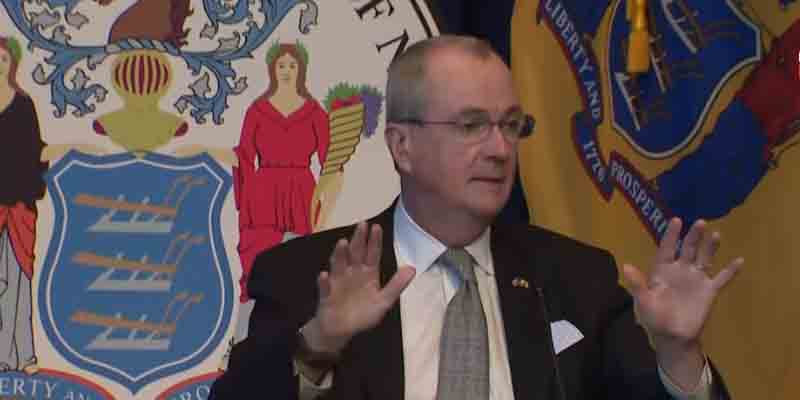TRENTON, NJ – After announcing a new category of COVID-19 deaths, probable deaths, Governor Phil Murphy on Thursday shed some light on what the heck he’s actually talking about.
“So what are we doing here? Basically, what we’ve been doing all along is we’ve been providing you with what’s known as confirmed deaths. These are relatively straightforward. These are people who tested positive for COVID using a very specific test such as that common PCR that you hear about and have been known to have died,” he said of confirmed deaths.
“Today, we’re reporting out probable deaths. Probable deaths actually makeup three different groups of people and very briefly, and slightly simplifying, it comes down to this: one group of people are those people who may have died and had a less specific test done, and so we’re not quite sure in that test. They died. We think it’s probably related to COVID, but we can’t say for sure. That’s a very small number of people at this point. A much larger group of people are those people who have died as part of known outbreaks, most commonly, although not exclusively in long-term care facilities, who had symptoms that were suggestive of COVID but never got tested. That was particularly common earlier in the outbreak when testing was difficult, and it often was impossible to test everybody.”
The third group of people, according to Murphy are scientific guestimates.
“The third group that we find are those people that we pick up just through looking through death certificates. When someone dies, a physician writes on the death certificate various causes of death, and those are searched to see if any of those match COVID in them. Because we don’t know very much about that patient, we don’t know whether they had symptoms, we don’t know anything else about them besides the fact that the death certificate says that COVID was involved, those are also counted as probable deaths,” he said.
Here’s Murphy’s full transcript of his speech justifying these now out-of-pocket COVID-19 deaths:
How do we go about this? How do we do an investigation? How do we come to that? Well, the most common way, and the way that it’s been working for outbreaks for years and years, whether it be Hepatitis A or measles or any bunch of other outbreaks there, is an investigation is done by the local health department. The local health departments are the boots on the ground, they are the people who do these investigations, and they’ve been working very hard through this entire pandemic. They go out, they do an investigation, and if they determined that the death in this case related to COVID happened, then that gets entered into our system as a confirmed COVID death, assuming that person had that positive test that we talked about. That happens relatively quickly. It’s still not instantaneous, because that investigation has to happen, but it’s a relatively fast way of finding out about these deaths.
The slower way, and the way that we’re hearing about more at this point, is through that death certificate process that I mentioned. And what happens there is after somebody dies, a physician has to certify a cause of death. We have thousands of physicians in the state. Sometimes that happens faster and more accurately than others; sometimes that information has to be cleaned up. Sometimes it’s not clear. That information then has to be checked against the other information that we have in our system to see if we already know about this person, in which case the death would be confirmed because they already had a positive test or not. And that’s a slow process. And that’s the process has taken us, really, months to catch up on although at this point, we’re essentially caught up as far as those results go at this point.
So what we’re reporting out today is a number that is going to vary. This is not a static number. Some of those people who we’re now calling probable, further investigation might show that they’re in fact confirmed. More people will be added to this probable list as time goes on, but we’re not expecting these huge jumps, the thousands of people reported all at once. And because this is a slow process and because it does take time for us to go ahead and confirm, and because we don’t expect this number to change rapidly, these are numbers that we’re going to be reporting out once a week.
